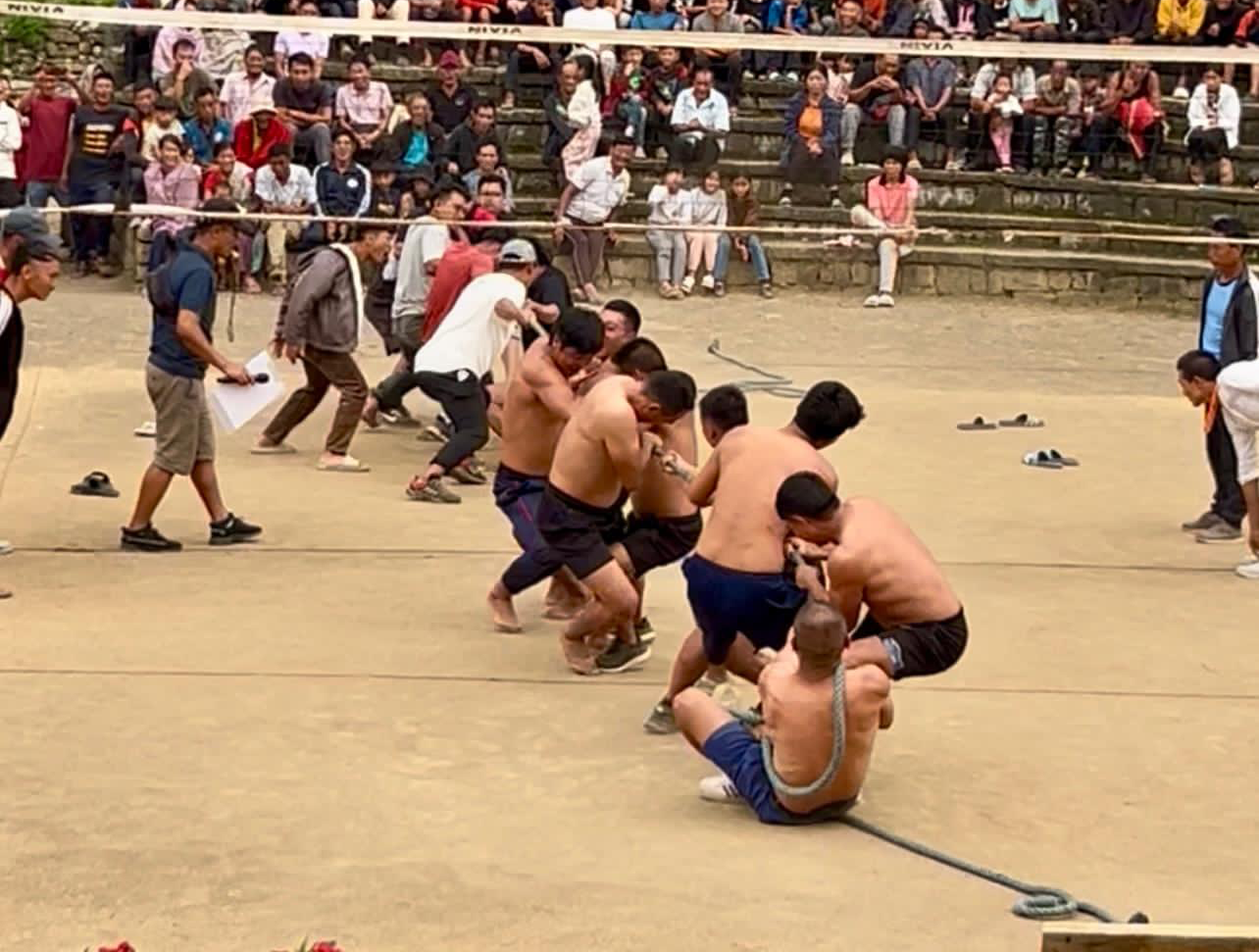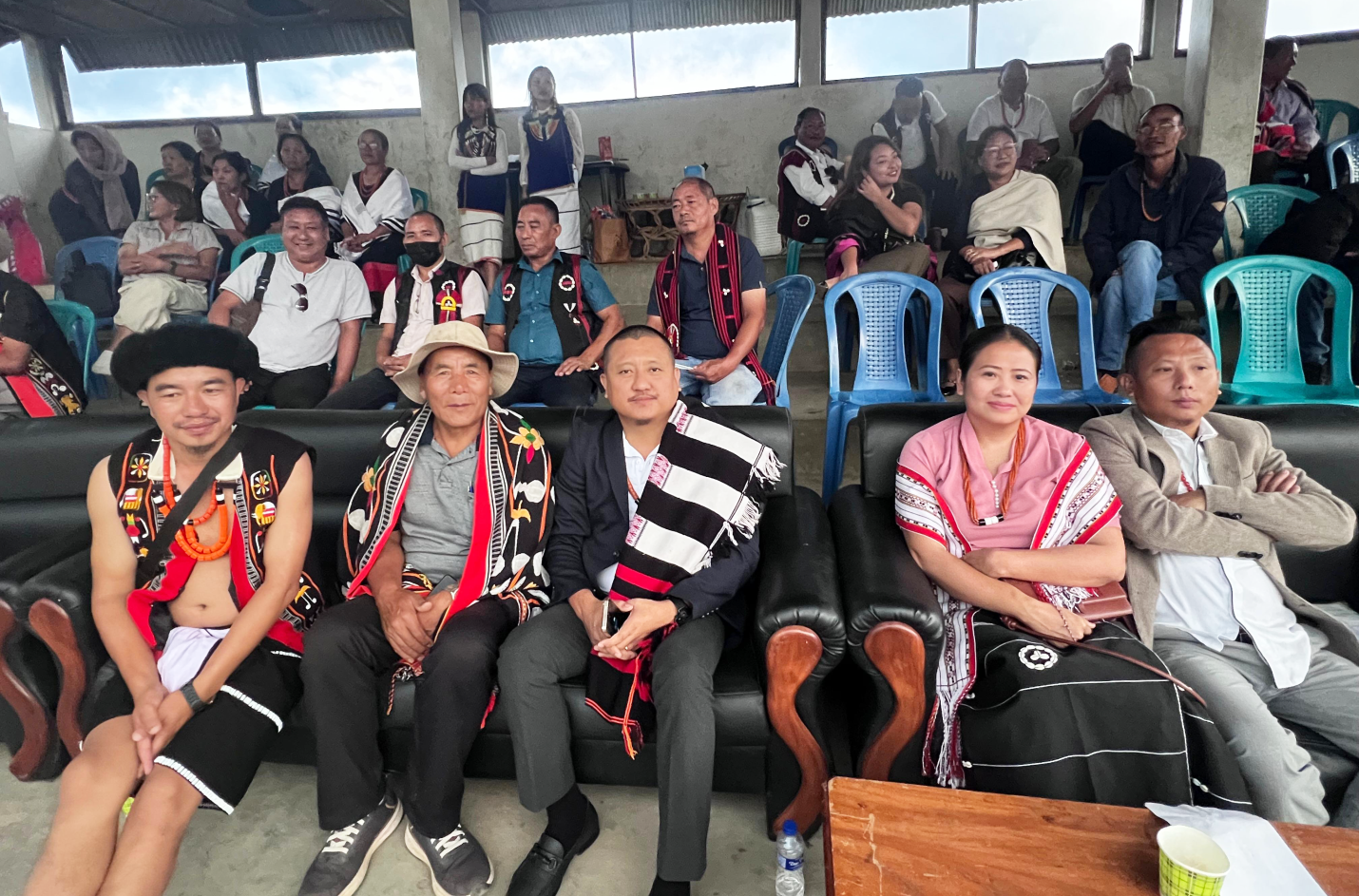Zhavame Village came alive today with the vibrant celebration of the Laoni Festival, organized by the Zhavame Village Tourism Board with the support of the Village Council, Village Development Board (VDB), Women Society, Youth Society, Students’ Union, and the entire community. The festival aimed to preserve and promote the rich cultural heritage and traditions of the village.
Speaking as the Festival Guest, Tito K Yeptho, President, Dimapur District Auto Drivers’ Union (DDADU) emphasized on the age-old bond between the Sumi and Chakhesang communities. He warmly recalled that their ancestors lived as brothers, and affirmed that this spirit of brotherhood must continue not just during times of celebration, but also in times of hardship and distress.
“We will stand by each other every day, in unity and solidarity,” he stated.
He also commended the people of Zhavame for beautifully preserving and showcasing their rich cultural heritage, especially through the celebration of the Laoni Festival and further encouraged them to continue upholding their traditions and values, as they had done so meaningfully on the occasion, serving as an inspiration to others.
Expressing a strong desire to strengthen this cultural bond, he further invited the people of Zhavame to participate in Sumi festivals and gatherings in the future, as a gesture of continued kinship and mutual respect.
In addition to cultural unity, he also underscored the importance of hard work in building a better life. He encouraged the people of Zhavame, particularly the youth, to step forward and explore different avenues of livelihood including the auto-driving profession. He assured them of his support and assistance to anyone from Zhavame willing to venture into this field.
He further reiterated that the ties between their communities must continue to grow stronger, rooted in unity, culture, and cooperation.
President, Western Sumi Youth Front, Atokiho Sema, stated his deep appreciation to the people of Zhavame village for their outstanding hospitality and graciousness during the NSF General Assembly held in 2019, under the former chairmanship of Vivotso Domeh. He acknowledged Zhavame as one of the finest hosts in recent memory and commended the village for upholding such high standards of organization, unity, and warmth.

Reflecting on the shared history and ancestral ties between the Sumi Hoho and the Chakhesang community, he reminded everyone that their forefathers once lived as brothers. In this regard, he also stressed the importance of reviving this sense of brotherhood and nurturing it across generations, so that the bond between the two communities not only survives but flourishes in the years to come.
Download Nagaland Tribune app on Google Play

In a gesture of solidarity and goodwill, Sema also offered his support to the people of Zhavame. He assured them that should they ever require any assistance or collaboration in the areas of Niuland and Chümoukedima, the Western Sumi Youth Front would be more than willing to extend a helping hand.
He further encouraged the people of Zhavame to remain united, to stand together as one community, and to continue working hand-in-hand for the betterment of their village and future generations.
The program was chaired by Athe Rhi, Executive Board Member of the Zhavame Tourism Board while Medovi Shupao, Youth Director of Zhavame Baptist Church said the invocation. The event featured a soulful folk tune performance by the Women Society, a presentation on the significance of Laoni Festival by Rapri Pohena, special number by Mengu Suokhrie and the symbolic Rikhure presentation by the Duume clan.
The celebration also included a variety of traditional and recreational competitions such as tug-of-war, bamboo climbing, and volleyball, adding to the festive spirit and fostering a sense of camaraderie among the participants and spectators.
It may be mentioned here that Laoni Festival continues to be a powerful reminder of the community’s deep-rooted identity and the importance of unity through cultural expression.

